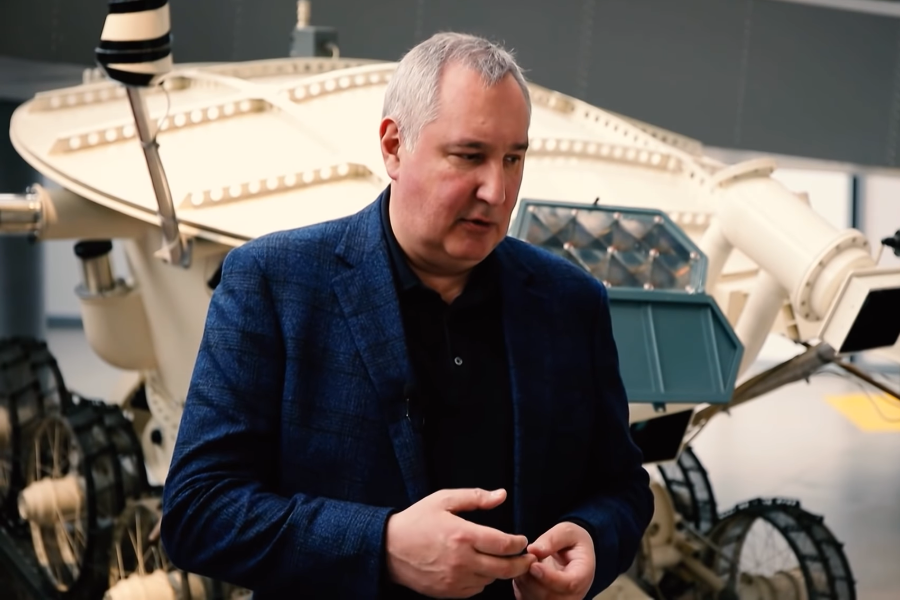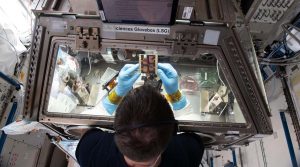Roscosmos – ESA Relations Strained As Rogozin Departs
21st Jul 2022
Russia’s invasion of Ukraine changed daily life for people all over the world. The invasion affected many industries and supply chains as well as food supplies and the global response to the climate crisis.
Of course, thoughts of the safety of the Ukrainian people are at the forefront of everyone’s mind.
When it comes to the industries that are impacted, the invasion dealt a heavy blow to the space industry. Historically, space remained one of the few truly global efforts. Russia, Europe, the US, and other countries and regions were able to pull together for a greater good. However, wartime changed all of that, at least in the short term.
Tensions Reach Boiling Point
The ESA quickly released a statement in February when the Russian invasion was underway. It also imposed sanctions in an effort to further isolate Russia, support Ukraine, and pressure Putin to rethink his actions.
“We are assessing the consequences on each of our ongoing programmes conducted in cooperation with the Russian state space agency Roscosmos and align our decisions to the decisions of our Member States in close coordination with industrial and international partners (in particular with NASA on the International Space Station).” said an ESA statement.
Roscosmos also took the choice to withdraw its workforce from Kourou, in French Guiana, in response to Western sanctions. A short statement on Feb 26th confirmed their withdrawal from the project, leaving ESA scrambling to find alternatives..
The delay of the European ExoMars rover caused perhaps the most concern. The ESA scheduled ExoMars for lift off on its journey to explore Mars in September 2022. The ESA must now undertake the huge task of replacing the landing platform, which is Russian-built.
The original statement regarding sanctions merely said that a 2022 launch was “very unlikely”. ESA confirmed that there will be a delay, with many claiming 2028 is now a likely date for launch. This is a far cry from the original plan of launching in 2020. However, technical challenges had created previous delays.
Russia’s Luna 25 project has also taken a hit. This programme relied heavily on collaboration with the European Space Agency. However, the Russia-Ukraine conflict meant that Europe withdrew support. The ESA was due to develop a navigation camera called PILOT-D for the Russian lander. Roscosmos will now have to develop its own alternative. This has delayed the mission until 2023 at the earliest.
Outspoken Dmitry Rogozin replaced by Yuri Borisov – A Change of Tact?
Dmitry Rogozin has been a controversial figure in Russian relations for some time. His departure in July 2022 mleaves observers wondering where he will appear next.
After being appointed the head of Roscosmos back in 2018, Rogozin made some incredibly provocative and even outlandish comments. He threatened to stop cooperating on the International Space Station, which has been a symbol of global collaboration, but this was actually one of the milder threats from the Russian.
Examples of Rogozin’s provocative behaviour abound. He had hinted that the ISS could be made to crash into the US or Europe. He was also embroiled in Twitter spats with Western political figures and even Elon Musk (this one is not as random as it seems on the surface, as Musk has assisted Ukraine hugely by providing Starlink satellites to the country).
The tensions have extended to private companies with Russian relationships, too. OneWeb, a UK company currently building a satellite constellation, has pledged not to use Soyuz rockets. Their hand was forced by (now former) Roscosmos chief Dmitri Rogozin, who said that Russia would not launch OneWeb satellites unless the company cut ties with the UK government
While removing him may seem to be a big step toward a more measured approach in the Russian government, it is actually rumoured that Rogozin will be offered another crucial role outside of the space sector of the Russian hierarchy. Kremlin spokesman Dmitry Peskov was quick to rule out any complaints about Mr Rogozin’s performance, thanking him for his service and explaining that he would be taking up a new position.
Rogozin’s replacement, Yuri Borisov, comes from a military background. Only time will tell what kind of approach he will take for the Russian space agency.
The New Deal With NASA (Could The ESA Be Next?)
A tiny flicker of hope appeared on the same day that Rogozin was dismissed. NASA and Roscosmos signed an agreement to exchange seats on their respective flights to the ISS. Some American astronauts will fly out to the ISS on the Soyuz on its upcoming missions. I in return, Russian cosmonauts will travel on a Falcon 9 launched from the Kennedy Space Center.
It is all speculation, of course, but could it be that Rogozin leaves behind a more receptive team to run space operations? The ESA certainly hopes so. However, the agency must retain a hardline approach, and Russian sanctions remain in place as the war continues.
The Kremlin’s proclivity to damage its own aspirations by continuing their war on Ukraine is clear. The direction of Roscosmos is not. A pessimistic view could be that the Kremlin is simply moving Borisov around in a reshuffle. He acknowledged recently that in his previous defence role, there were shortcomings within the military industries, and that Russia should have been proactive in developing drones.
Perhaps Borisov’s military skills will be put to use as the Russian space programme takes a more military approach. This would, of course, be awful news for anyone focused on the desire for space exploration, and presumably means that the stalemate would continue.
The hope is that war is not our “new normal”. To regain collaboration among the world’s space agencies, the parties must find an end to conflict, which could pave the way for the collaboration we all need.






Thank you for your comment! It will be visible on the site after moderation.